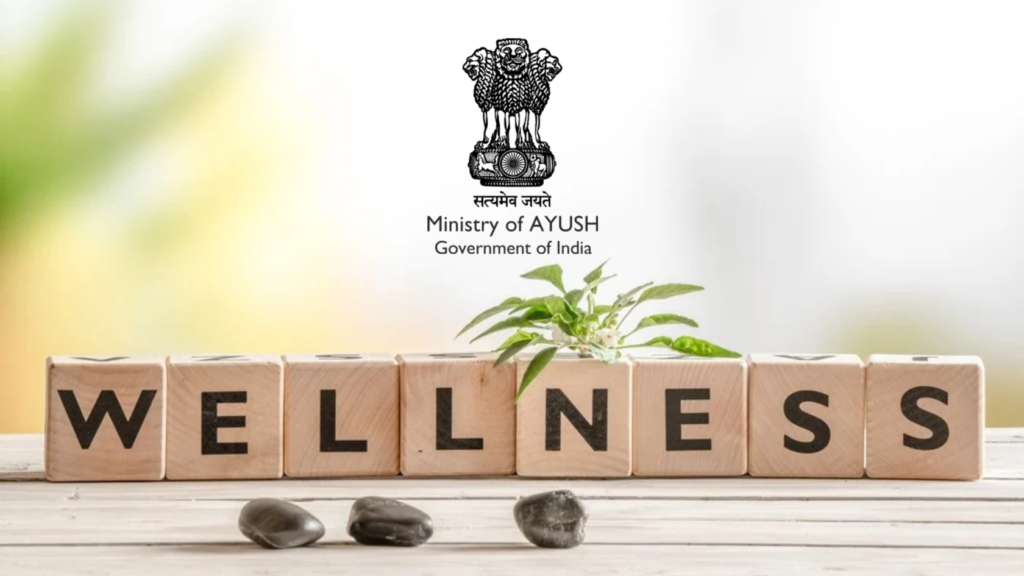
In recent years, healthcare has become a pivotal aspect of global concern, with nations striving to offer the best medical solutions to their citizens and even international visitors.
The Ministry of Ayush has announced the addition of “Chapter 11A – Ayush Visa” to the Visa Manual, following the existing “Chapter 11 – Medical Visa.”
Various countries have been exploring innovative approaches to address the complex needs of patients from all walks of life. Among these endeavours, India stands out as an extraordinary destination, renowned for its rich history of traditional healing practices.
In a groundbreaking move that reverberates across the globe, the Indian government’s introduction of the Ayush visa has set the stage for a new era of traditional healing and wellness tourism.
The recent clarification by the Ayush ministry regarding CBD’s status as a non-drug substance has sparked enthusiasm among advocates of natural remedies. By recognizing CBD’s non-drug status, India may embrace a new realm of possibilities for incorporating this natural element into Ayush treatments.
What’s the Ayush Visa about?
It’s an exceptional opportunity for foreigners seeking medical treatment to experience the profound benefits of Ayurveda, Yoga, Naturopathy, Unani, Siddha, and Homoeopathy-time-honoured systems that have garnered recognition and respect worldwide.
A vital step in India’s Heal in India campaign, forging a collaborative path between the Ministry of Ayush and Health & Family Welfare, promoting India as the ultimate medical value travel destination. Stay tuned for the all-in-one Heal in India portal.
Diving deep into topic
The scheme targets international individuals interested in experiencing genuine Indian treatments like Ayurveda, yoga, wellness, and therapeutic care.
The primary objective is to facilitate the access of these authentic medical treatments to interested foreign nationals arriving in India.
How is this a great idea? The Power of Ayush Visa and Wellness Tourism:
The Ayush visa holds the promise of transforming India into a preferred destination for seekers of holistic well-being.
With an estimated annual growth rate of 9.9% in the global wellness economy, the Ayush-based healthcare and wellness economy is projected to reach an impressive $70 billion by 2025. (Source: Economic Times)
Overall, the introduction of the visa is being seen as a visionary step by the Indian government to leverage its cultural and natural treasures to enhance the well-being of people worldwide and to position India as a leading destination for traditional healing and holistic wellness experiences.
This not only reflects the rising global interest in traditional healing but also presents an opportunity for India to showcase its profound heritage of ancient wellness practices.
Not forgetting, by promoting these holistic approaches to health, India can offer unique experiences to travellers seeking natural remedies and authentic wellness journeys.
Takeaway
The Ayush visa initiative stands as a testament to India’s commitment to preserving its ancient healing traditions and offering the world a holistic path to wellness.
By striking a harmonious balance between promoting traditional healing practices and maintaining modern healthcare standards, India can pave the way for a transformative experience for international visitors.
As the Ayush ministry’s drug clarification on CBD opens new avenues for natural remedies, it calls for responsible regulation and ethical practices to ensure a safe and reliable journey for those embarking on the Ayush visa odyssey.
In the heart of this wellness revolution, India beckons, inviting the world to rediscover the timeless wisdom of Ayurveda.
While the Ayush visa promises to boost Medical Value Travel in India and position the nation as a global wellness destination, what are your thoughts on the balance between promoting traditional healing practices and maintaining the standards of modern healthcare?































